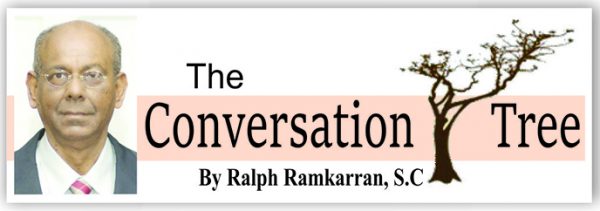
As regards Guyana and elsewhere, when America speaks, there are consequences for not listening. The views of the United States have influenced the history of Guyana in very profound ways. In 1961, President Kennedy requested Prime Macmillan to postpone Independence for Guyana. The rest is history. In his 1990 Republic Day message President George H.W. Bush told President Hoyte that he hoped that the upcoming elections would be free and fair. The rest is history. Other representations made by the US have impacted significantly on Guyana’s direction.
Guyana’s growing economic power and regional influence has raised its importance to the US. Therefore, its deep divisions and political instability are now a major cause for concern among Guyana’s friends, particularly the US. Political violence now erupts regularly. The Opposition has convinced African Guyanese that they are being deliberately kept in poverty and are being discriminated against and marginalized by the PPP. One important US Congressman has bought in to this narrative. The allegations of corruption have once again erupted involving Chinese businessmen while Chinese investment in Guyana is growing steadily. Other investors have been active and are involved, while American investment, apart from Exxon, is nowhere to be seen. It is against this background that the visit, which took Guyanese by surprise, took place.
The views of the US Government must have been told to President Ali and his team by the Secretary and Vice President in direct language. The public now has to decipher the private message from the public diplomatic language. The relevant phrases in Secretary of State Blinken’s statement are “inclusive growth” and “strengthen transparency.” Those of Vice President Harris are “inclusive democracy” and “economic development and security for all Guyanese.”
“Inclusive growth” and “economic development and security for all Guyanese” appear to mean the same thing. The Secretary is calling for “growth” that “includes” everyone while the Vice President is more precise but expansive, calling for “economic development and security.” The meaning of “security” is not known. It could mean broad security, such as protection from criminal and political violence or limited to economic “security” for those who claim to have none. Whatever the meaning, the picture appears to be that the US Government is calling on the Guyana Government to ensure that all Guyanese benefit from economic growth. This could only mean that the Opposition’s claims of marginalization and discrimination, at least in terms of economic benefits, have resonated with the US Government and the latter are calling on the Guyana Government to address the allegations.
The Secretary calls for “strengthening transparency.” This is a wide statement. It may be referring specifically to the Vice disclosures or it may be referring to transparency across the board. The proximity of the visit to the Vice revelations and its suddenness, leads to the suspicion that it was hurriedly arranged because of Vice. Whatever the case, if the Government takes the US seriously, as it should, we are likely to see measures to enhance transparency, including perhaps a credible investigation of Vice’s revelations. These would be welcome.
Vice President Harris calls for “inclusive democracy.” This reflects the official positions of both Government and Opposition in Guyana. Neither the PPP Government, nor the APNU+AFC Government, has taken any steps to give effect to inclusive democracy as provided by Article 13 of the Constitution enacted in 2001. Some of the instruments for inclusive governance, sectoral committees of the National Assembly, have not functioned since 2001. Training was even resisted. One proposed visit shortly after 2001 by MPs to the Rhode Island legislature to learn about the functioning of its committees in a small parliamentary system, to be paid for by the IDB, was resisted by the Government which refused to nominate members for the visit. The committees have no idea how to achieve their mandates and, in any case, they are inadequately resourced. A game of football is being played over ‘meaningful consultation,’ with resistance to reasonable requests made by the Leader of the Opposition.
The statements of the Secretary and the Vice President are clearly intended to push the Government in the direction of inclusive governance, inclusive economic development of all Guyanese and transparency. The US appears to believe that the Government is faltering on these matters and wants the Guyana Government to act, or act more forcefully, on them. Have the more recent lessons from the consequences of resistance to the US been learnt? 2015? We shall see. One highly successful turn of the visit for President Ali is his glowing reception by the Black Caucus of the US Congress and the issue to him of a Certificate of Congressional Recognition. No one saw that coming!





